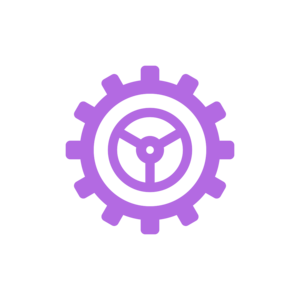Big changes

In a brain-pick activity, participants interview people who share a common experience or background. (These people are called informants.) Participants interact with these informants—and with each other—to collect and organize useful information.
This activity uses people who have undergone major organizational changes. Participants interview them to come up with a list of guidelines for coping with change.
Goal
To effectively cope with major changes in the organization.
Materials
Instructions
Preparation
Prepare a list of questions related to coping with organizational change. Select one question from this list for each team.
Here is a sample list of questions:
- What was your reaction when you first heard about the change? Looking back, how could you have reacted better?
- Did you have negative feelings about the change (such as guilt, fear, anxiety, anger, betrayal, or hopelessness)? How did you cope with them? How could you have coped with them in a better fashion?
- How did the change affect you personally? What were the advantages and disadvantages? Were you able to objectively analyze the costs and benefits? How could you have done a better job?
- What were some of the questions that you had when the change was announced? How did get answers to these questions? How could you have done a better job of getting answers to the questions?
- How did your family react to the organizational changes? How could you have presented the information to your family in a better fashion? How could they have provided you with more support?
- Were you ready for the change? How did you prepare for the change? How could you make yourself ready for the next change?
- What support did you receive from your colleagues and your managers? How could you have obtained better support?
- Did some new opportunities arise for you as a result of this change? Were you aware of these potential opportunities at the beginning of the change?
- What were some of your loses as a result of this change? How did you cope with them? How could you have coped with them in a better fashion?
- Do you feel betrayed by your organization? How did you regain your trust in your organization?
- How long did it take for you to bounce back from the change? What could you have done to make yourself more resilient and bounce back faster?
- What new professional skills did you have to learn after the change? How quickly and effectively did you learn these skills? How could you have done better?
- Do you feel more secure in your job after the change? If not, what plans do you have for coping with the next change?
Flow
Organize teams. Divide the participants into three to six teams, each with three to 10 members. Seat each team around a table.
Select the informants. Ask the members of each team to talk about organizational changes they had undergone. Based on this discussion, ask each team to select an informant who appears to have effectively coped with a major change recently. Announce a suitable time limit for this selection process.
Brief the informants. Invite all the selected informants to come to the front of the room. Give them individual copies of the list of questions. Ask them to think back on the organizational change they underwent and prepare suitable answers.
Brief the teams. Assign a question to each team. Explain that the team members will interview different informants (including the person selected from their team) using this question. The goal for the team is to come up with a set of practical guidelines for effectively coping with organizational change based on the responses from different informants. Emphasize that teams should take comprehensive notes during the interview.
Conduct the first round of interviews. Send an informant to each team. Ask the team members to interview this informant focusing on the question given to them. Announce a suitable time limit. Ask the teams to get started on the interviews.
Repeat the process. At the end of the assigned time, blow the whistle to conclude the interviews. Send each informant to the next team. Repeat the interview process. Continue with more rounds of interviews so each team interviews all different informants, one after the other. (Each panel member is interviewed by each team on a different question.)
Prepare a list of guidelines. Ask members of each team to compare their notes from different interviews. Ask them to summarize the key points into a set of practical guidelines for effectively coping with organizational change. Ask them to focus the specific area related to the question they asked. Announce a suitable time limit.
Coordinate team presentations. At the end of the assigned time, blow the whistle to conclude the guidelines listing activity. Ask each team to present its list of guidelines to the entire group. After all teams have made their presentations, conduct a brief discussion of the ideas.
Adjustments
Not too many informants are available in the group? Prior to the activity, select a panel of outside informants with effective experiences in coping with major organizational change.
Attachments
- noun_634238_B36AE2.png
Background
Source: Thiagi Group
Author
We do training, and we do it differently. We design, develop, and deliver training faster with uncompromised service and quality. We are cheaper, without cutting corners. And we do it with better results, yield, ROI, relevance, and impact. For the past 35 years, we have been conducting projects that produce measurable business and professional results by improving human performance. Training is one of the different interventions that we design, develop, and deliver. Even though we do not limit ourselves to training projects, we are mostly recognized for activities in this field.
More about author